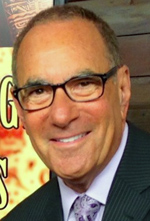By Michael R. Mantell, Ph.D.

SAN DIEGO — Unattractive, stupid, lazy, lacking self-control…is that what you not-so-secretly think of the nearly 70% of adults with “overbesity,” that is, those affected by overweight or obesity? If so, read on. You may be a fat shaming bully and not even know it.
I was working out in the gym yesterday, and observed a classic example of this type of behavior. A woman with obesity wearing what is today, de rigueur, stylish tight leggings, a tight-fitting workout top and high fashion sneakers was greeted by one of the gym’s trainers with, “You look so great!” The member said, “Ouch, is that a nice way of saying I look too fat to wear these clothes?” An undoubtedly well-intentioned remark, that went south with one’s foot in the mouth and another’s hurt feelings.
What would a more sensitive, perceptive trainer have said? Perhaps instead of emphasizing looks, the trainer could have more understandingly focused on other clear differences she observed, such as the effort the member put in during a workout or her cheery disposition.
“Fat” has become today’s dirty three-letter bullying word, all but recently eliminated by Facebook, and when used in a finger-wagging or stigmatizing way, has been demonstrated to lead to weight gain. Fat shaming is real, it’s widespread, it’s harmful and it’s unhealthy both physically and emotionally. And the fact is we don’t even have a uniform and homogenous definition of just what being “fat” is. BMI, waist hip ratios, and other metrics are one thing. “Feeling fat,” having to buy a larger size pair of jeans, or the celebrity who put on a few extra pounds may be deemed fat. But is that what “fat” is?
“Fat shamey,” patronizing comments by those who are less than sensitive or perhaps simply uneducated, often justify their hurtful words and actions by pointing to the obesity epidemic, wanting to join the “war on obesity.” What “war”??? A mother reported to me that her 7 year-old son asked her, “Mommy why do people want to have a war against you?” And what about the condescending friend who shouts, “I’m so proud of you” when she sees you on the treadmill at the gym? Positive intent but why draw attention to the fact that an overweight or obese person is, can you believe it, working out?
And what about fat shaming apps such as “Fatify,” “Fatbooth” or “Fat You” that have emphasized size as a joke, to be laughed at and be turned into a chuckle. You really think apps like these promote, advance and serve as a catalyst for change? No, at least, not according to decades of experience and sound research. In fact, it paralyzes forward movement towards health.
Let’s face it. Not everyone is Kelly Clarkson, who after Katie Hopkins nastily tweeted, “Jesus, what happened to Kelly Clarkson? Did she eat all of her background singers?” responded with, “That’s because she doesn’t know me. I’m awesome and it doesn’t bother me. It’s a free world…” Many follow #FatMicroaggressions in social media sharing in the broad conversation what they’ve experienced that’s been wounding and unsuitable.
So are you a fat-shamer? Here are questions that may help you decide:
– Do you feel superior to overweight or obese people in the way they look, eat or move?
– Do you make jokes about fat people, tease them or allow others to do so when you see them?
– Do you think being in good shape, “thin,” is an attribute of success, self control, or a moral issue?
–Do you feel entitled to tell you friends with obesity or overweight how much and how they should be eating, what diet approach worked for you, or in any other way, acting like the food police?
– Do you engage in” fat talk,” “You aren’t fat, just look at my huge love handles and saddle bags!”
Susan Sontag in her book Illness as Metaphor, observed that several health conditions have been linked to, and thought of, as a failing in moral character. Overweight and obesity are surely in this category.
It’s time to stop insisting that overweight and obese friends and family go off to “fat camps,” staring and snickering at overweight and obese people drinking Big Gulps or ordering a dessert at your table, and engaging in what a whopping 93% of college women engage in — fat talk.
So let’s remember that you can’t tell a book by it’s cover and you can’t tell who’s healthy by looking at her or him. When a fellow on an incline bench next to me told his trainer, “You can’t tell by looking at me but I’ve been working out for six months,” and the trainer had the remarkable poor sense to chuckle and respond, “Ahh, that’s what they all say,” it points to a second point—you have no idea how much effort someone is putting in to exercising and dieting by looking at him or her.
My answer is this. Empathy. It’s the ability to understand and share the feelings of another. Try it. You may find you are in the lead to stop fat shaming.
*
Dr Michael Mantell, based in San Diego, provides coaching to business leaders, athletes, individuals and families to reach breakthrough levels of success and significance in their professional and personal lives. Mantell may be contacted via michael.mantell@sdjewishworld.com
__________________________________________________________________
Care to comment? San Diego Jewish World is intended as a forum for the entire Jewish community, whatever your political leanings. Letters may be posted below provided they are civil, responsive to the article that prompted them, and signed with your first and last name, as well as with your city of residence. There is a limit of one letter per writer on any given day.
__________________________________________________________________